#screenplay writing
Photo
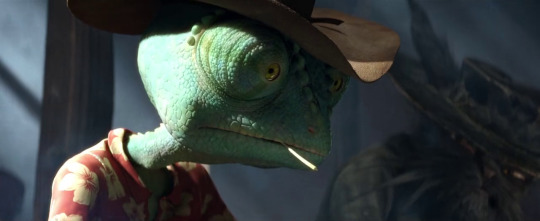
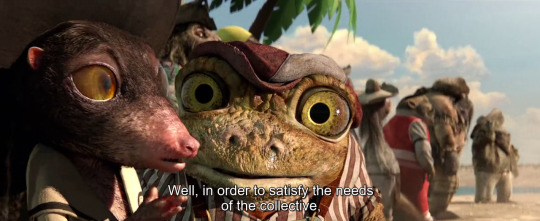
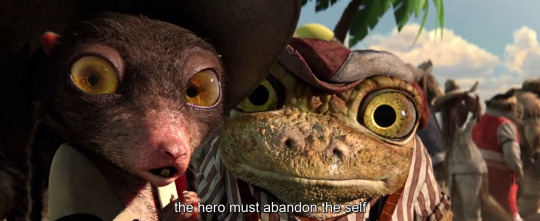
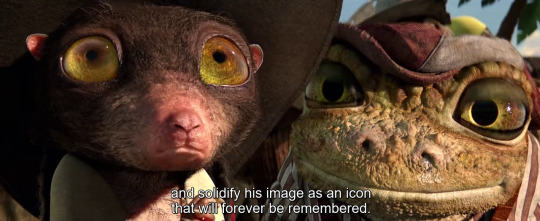



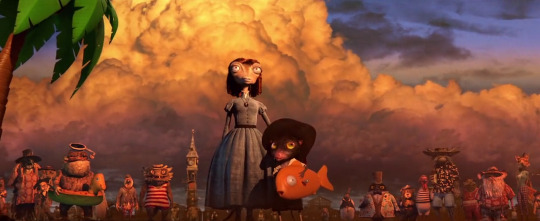
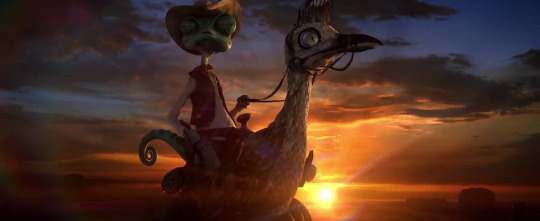
The sunset shot.
(from Rango, 2011)
#storytelling#writeblr#the sunset shot#rango#writing#screenplay writing#western#gore verbinski#james ward byrkit#editing#john logan#abigail breslin#johnny depp#isla fisher#sunset#cg animation#closing shot#conclusion#narrative storytelling#western motif#mojave desert#the needs of the collective
384 notes
·
View notes
Text
In today's entertainment industry, creating a TV show that captivates audiences is crucial. With so many options available to viewers, it’s essential to make sure that your TV show stands out from the competition. Here are some tips for writing a compelling TV show that will keep viewers hooked.
1. Develop unique characters
One of the essential elements of a compelling TV show is creating characters that are memorable and unique. Characters that stand out can help to capture the viewer's attention and keep them engaged throughout the series. Make sure that your characters have complex personalities, their own motivations and backstories, and that they interact in a way that's both believable and entertaining.
2. Create well-crafted plots
Having a firm grasp over your TV show's plot is critical as it helps keep the storyline engaging. Compelling TV shows have storylines that are exciting, thought-provoking, and surprising. You want to keep your audience guessing and on the edge of their seats from the beginning to end.
3. Make sure your writing style fits the tone
Every TV show has its own unique tone, and the writing should reflect that. Memorable TV shows have a tone that helps captivate the audience throughout the entire series. For example, a drama TV show with comedic undertones or vice versa could be compelling if the writers know how to balance the style.
4. Understand your audience
Successful TV shows understand and cater to their demographic audience. You need to make sure you are creating content that resonates with your intended viewership. By understanding your ideal audience, you can ensure that your TV show hits all the right notes in terms of content, pacing and style of writing.
5. Follow through with subplots
Working on additional layers in subplots not only give your TV show depth, but it also provides an opportunity to showcase significant character development. It helps keep the audience engaged and entices them to follow along throughout your series.
In conclusion, writing a compelling TV show has many factors that you need to consider. By following the tips mentioned above, you can create a TV show that your viewers will be drawn to and keep them engaged throughout the series. Remember to develop unique characters, create well-crafted plots, understand your audience, follow through with subplots and make sure the writing style fits the tone. Combining these elements will help you craft a successful and memorable TV show.
#amwriting#scriptwriting#writingtips#writingadvice#writing resources#storytelling#tv shows#screenplay writing#tvshowwriting.
10 notes
·
View notes
Text
So question for all my writers out there:
Is it normal for you to be so engulfed by working on your project you just…forget to human? Like you’ll forget to shower, eat, even wanting to skip out on your job long enough to finish a few pages?
I’m writing a screenplay (rewriting it really) and I just…don’t wanna stop. I don’t even wanna sleep right now because I just want my ideas to fix this train wreck of a story I made ~3 years ago to be put into paper form and look amazing! Anyway I was just curious. Have a blessed night/day everyone!
#writing#screenplay writing#writer#should i be concerned#oh well#i’ll live…right?#writing inspiration#writerscommunity
5 notes
·
View notes
Text
The Right Format For Writing a Screenplay
Every great screenplay writer whose stories have made it successfully to the big screen and earned millions at the box office started with only an idea. Writing, proofreading and formatting did not come naturally to them all; drafting scripts is not an entirely easy feat. Not only does it require knowledge and skills regarding film-making, audience preferences and more, but also immense patience, dedication and faith within oneself. A story written for a movie, traditionally known as a script or a screenplay, must follow certain industry conventions in order for your work to be considered seriously by production companies, film studios or agents. It can be daunting and elusive, with different scriptwriters following their idiosyncratic patterns, making it hard to decipher what needs to be done. But don’t worry; they are easy to follow and can make a massive difference to your writing style! Sit back and let us take you through the various features to keep in mind while considering scriptwriting format for a movie.
Firstly, you must understand the length requirements for your screenplay. The script must at least be 70 – 180 pages, but don’t let this number intimidate you. While the dialogue and narration (description of action) will eat up a significant portion of your page, details like the scene heading, number, transition, extensions, intercuts, and more will also take up space. A typical page of your screenplay (approximately 55 lines) will include the following elements:
Fade In: When your screenplay begins.
Scene Heading: Outlining the location and time of the scene.
Scene Number: Where it falls in the sequence of events.
Action: A brief description of what will occur during the scene. These will be written in the present tense and refer to the characters in the third person.
Transition: Any instructions for how the scene will unfold like “Cut To” or “Fade Out.” However, it is used less frequently in modern screenplay writing.
Character Name: Recognises the character speaking or executing a particular action. Each time a character is introduced, their name must be entirely capitalised, their age must be referenced, and a brief description regarding their traits must be provided.
Extension: Any additional details regarding the character’s speech, especially indicating their presence when they cannot be seen. Examples include off-screen “(O.S.)” or voice-over “(V.O.).”
Dialogue: Who is speaking and what they are saying!
Parenthetical: Certain characters may need to execute actions or emote while expressing dialogue, like “into phone,” which should be in parentheses between dialogues. These add nuance and sensuality to the scene.
9 notes
·
View notes
Text
Finally decided on the name of my cowboy for my screenplay(s)
2 notes
·
View notes
Text
i take back everything i ever said about how much book to movie adaptations suck.
#they are a pain in the ass#screenplay writing#is no joke#and it doesn't make adaptations easy#writing#lesson learned#book to movie
3 notes
·
View notes
Text
Picture of Dorian Gray AU where he's a celebrity in the modern day (broadly speaking) and his stans post pics of him looking the same through the years on Twitter and caption them "How you age when you're unproblematic 💖💖💖"
#i'll write something like this at some point#i still need to show people my Dracula AU screenplay where Jonathan is an influencer#the picture of dorian gray
7K notes
·
View notes
Text
I've been contemplating applying to toronto film school to study screenplay writing for TV and film. And last night while I couldn't sleep I thought of the plot for a rom-com that I really want to write a script for. Usually when I think of ideas like this it's instantly an idea for a book (that I rarely get to). But this one is prefect for a movie, it would be funny and cute and up lifting.
Now to get into that school you have to submit 2 or more pieces of your writing work. And I've spent a lot of time writing fanfiction, because I love being in fandoms, reading fanfiction, and all that stuff because it's just so up lifting and fun and not stressful. But I don't think they'll take me seriously if I submit fanfiction lol. So I have to write a few short stories or a short screenplay to submit to be considered and I'm so nervous. I've had a hard time admitting to myself just how much I want to be a writer in some capacity. Back in high school I considered attending college for journalism and chickened out because I didn't think I would be good enough. But now that I'm older and people keep asking me what I want to do with my life, my thoughts keep going back to writing.
1 note
·
View note
Text
how to write convincing dialogue
did you know that show, not tell applies to dialogue, too? while dialogue can be used to further your narrative, it can also be used to showcase your characters. here's how:
-what is your character hiding? most people don't say things at face value. they hide what they mean within their words and tone, but in writing, you can't verbally hear the character's tone. ways to convey non-verbal tone include: contradictions between words and actions, context behind the words (ie. the scenario, character's actions and feelings), syntax (ie. fragments, repetition, awkward phrasing). also consider who the character is hiding information from: is it the reader? the characters? both?
-favorite words or phrases. does your character use a certain phrase or word a lot? do they often put their prepositions at the beginning or the end of the sentence? these are questions to ask when you're arranging the syntax of the dialogue. everyone has a specific way of talking. make sure you give each character a distinguishable voice.
-personality. this is how you can create a distinguishable voice. is your character confident? are they shy or hesitant? do they repeat the phases of others because they have nothing to add to the conversation? are they confrontational or do they beat around the bush? ask questions like these. if your character is confident, they may make bold statements and appear sure of themselves unlike shy characters who use words such as "maybe" or "should" or "think." to boil it down, think active wordage versus passive.
-observe others. don't look solely at television or other books. sit at your local coffee shop and listen in on conversations, then try and break it down. are they hiding anything? do they frequently use any words or phrases? how would you describe their personality? the better you get at breaking down conversations, the better you can create convincing ones, whether shallow, deep, or as a narrative device, because even if you use your dialogue to move your narrative along, it should still be compulsively convincing.
one way to tell if you've ticked all these boxes is if you can tell who is speaking without any tags.
happy writing! if you have any questions about how to implement any of these tips, our ask box is always open.
#writers on tumblr#writing#writeblr#dialogue#writing tips#writing advice#writers of tumblr#writing help#writing resources#nanowrimo#novel writing#story writing#screenplay#creative writing#writers#writing tools#write it#books and novels#fiction
8K notes
·
View notes
Text
The novel ones are all real situations in my novels by the way, the screenwriting one are complied from friends and my own experiences.
Funnily enough, I actually prefer writing screenplays because of the limits. My novels are fantastical magical other worlds with dragons and sorcerers, but my screenplays are mostly realist family comedy-dramas.
(Except the Baby’s First Steampunk Horror and The Mystery Series Set in an Asylum For Were-People, but they’re exceptions)
2K notes
·
View notes
Text
rating: 18+. mdni.
masterlist
Your arms are tightly wrapped around Jisung’s back, nails grazing his soft skin as you reach for his hair to pull him deeper into your neck. He pants into the crevice, hot puffs and noises of pleasure muffled within it. The movements of his hips are slow and precise, his cock hitting the spot that has you whimpering into his ear and your split thighs trembling around his body fit between the space.
Your eyes open, catching a glimpse of the luxurious headboard and fixtures of light around the room, Jisung’s pale, bare shoulders and soft dark hair, and your hands grasping at any part of him you can reach. You let your eyelids flutter shut, unable to rip your attention from his warmth and the pleasure brought with it. It feels intimate. It has for weeks.
Jisung is a romantic, you knew that before your arrangement had begun. And despite his efforts to deny it, it was clear that nothing had changed. Made even more so by the increasing romantic gestures each time he gave in to his desires. A bouquet of flowers to your favorite takeout and everything in between. Even during the most innocent moments like when he soothingly rubbed your feet or gently tended to your hair, his touches, his glances, his words were tender.
This time was no different. The hotel room is nice, far too nice for a struggling university student like he is to afford, but you said nothing of it as you pushed your way inside, distracting yourself by locking your lips with his and desperately pawing at his hoodie. Jisung let you, swallowing his words and giving in to your touch, relishing in it. His body’s reaction was immediate, skin burning and heart thumping as he followed your lead.
Jisung thrusts harshly as if he senses your wandering mind, forcing a whine from your throat. Gentle sucks trail up the column of your throat as Jisung makes his way up to your mouth. Soft kisses are laid on your lips between hot pants that blend with his the closer you get to your climaxes.
His lithe fingers slither between your sweaty bodies, taking his time approaching your core to savor the feeling of your skin underneath his fingertips. He begins to swirl the flat pads of his digits around your swollen bud in the way he has grown so familiar with. You gasp shakily, the stimulation to your clit and the pounding of his stiff cock in your gummy walls causing you to feel weightless, falling limp with one last scratch down his back.
Your walls spasm around him as you cum, eliciting a groan from the man above you. Jisung uses you mercilessly, abandoning the slow pace he had used during your intimate encounter. You whimper, writhing beneath him as he overstimulates you. Tears fill your waterline and Jisung lays sweet pecks to your face as his body tenses and his thrusts turn sloppy.
He connects his lips with yours again, moaning into your mouth as he stills inside you, grabbing your weak hands and sliding them up the soft sheets.
#quickly writing down todays current thoughts#surprisingly pretty soft#who am i#starring... jisung !#[NEO] play…#screenplay…#park jisung smut#park jisung x reader#jisung hard hours#nct hard hours#nct hard thoughts#nct dream x reader#nct x reader#nct dream hard hours#nct dream hard thoughts#nct smut#nct jisung#jisung scenarios#jisung imagine#nct imagines#nct dream#nct#jisung#park jisung
1K notes
·
View notes
Text
I still can't get the unused concept art of Wish out of my head so I've been reading a lot of rewrites and looking at a lot of Wish redesigns...
So... I got inspired. I'm currently conceptualizing my own Wish "rewrite/redesigns", but with a twist. It's gonna be a spiritual "prequel", cuz idk I feel like being meta since we'll be using the original concepts before the final concepts/decisions made for the final movie XD
Many of my "prequel" characters will be stand-ins for the canon characters! So "Asha" will be renamed "Amala", "Magnifico" will be called "Mamoun", and so on. Think of Pokemon Legends: Arceus regarding the relations of these "OCs" with the canon characters.
Anyway, here are the designs I have so far! I only have the designs for Amala and the Star for now. Hopefully, I can get to draw the other characters soon, especially Mamoun and his wife.
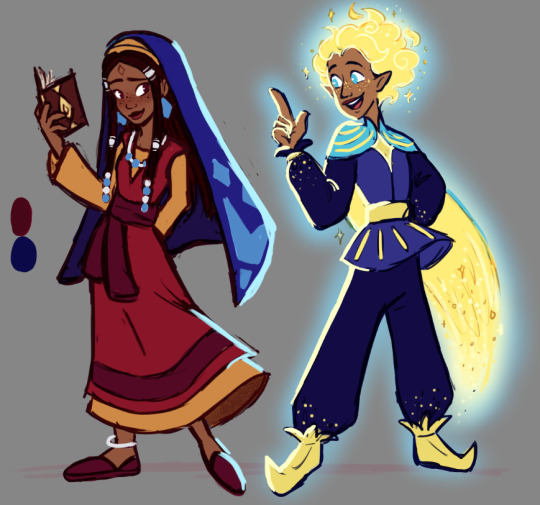
The story will be called "Once Upon a Wish"
Here's an overview of what I have so far... Some details may change if I feel like my other choices serve the story better. (Also, small disclaimer, this is just a veryyy self-indulgent AU made by yours truly, so some details may not be accurate with the canon lore present in Wish)
The story takes place on the same island of Rosas, but from many years ago. If my research is right, canon Wish takes place in the 1200s, so maybe my "prequel" can take place in around the 900s-1000s. Rosas definitely wasn't called Rosas back then, but I'm still figuring out what to call it so I'm just gonna refer to it as "an island".
Amala is a shy, meek, but hardworking apprentice of the island's head sorcerer Mamoun (hence, her color palette looks similar to Mickey's outfit from The Sorcerer's Apprentice). Despite all her hard work in her magic studies, she doesn't really excel at using magic, making a lot of accidents during training. If there's anything she really excels at, it's the act of storytelling (She can draw/animate, sing, and write stories like fairy tales).
Amala also has a little sister Ayah, who I can imagine is the Lilo/Anna to Amala's Nani/Elsa. Ayah is spunky and cheerful, but she has an illness that makes her disabled. The sisters are orphans, but they live under an old family friend they affectionately call Grandpa Dabir. Dabir is a retired bard turned doctor who was part of a troupe with 6 other former bards, all of whom he and the sisters still interact.
That's all I can share for now. Feel free to ask me any questions about stuff about this AU!
#ryl rambles#rylxdraws#wish#disney wish#wish 2023#wish concept art#starboy#asha#wish redesign#wish rewrite#wish au#once upon a wish#idk if I ever do make a fic of this#ill probably try to make it in screenplay format#i just wanna try if i wanna go into the animation industry#if im motivated enough to write it of course HAHAHA
167 notes
·
View notes
Text
How to Write on Final Draft (without it feeling so daunting)
It's incredibly difficult to open up a Final Draft document without feeling like you're literally writing your final draft, so here's a few features you can use your advantage!
1. Turn on dark mode
Dark mode makes it look like less of a script and more of an outline. Edit and rewrite in light mode, you will feel the difference.
2. Use speed view
Speed view gets rid of pages and page numbers and therefore you are only looking at the words you type.
3. Use focus mode
Focus mode removes the scenes, page numbers, and outlines you have at the top on the program while writing. Another way to forget about focusing on progress.
4. Make a messy beat board
Throw all your ideas onto the beat board, it should help make the document feel a bit more lived-in and less pristine.
Bonus:
5. Set a template with your formatting and use that to start every script you write
While a script format is very ridged, there are things you can do to personalize it. When you find those things, make them in a Final Draft doc (without actual writing) and save as your own template so you don't have to change all the elements every time.
#ronni august#ronni's writing tips#final draft#writing#writing tips#screenwriter#screenwriting#writing inspiration#writing ideas#writing inspo#writing advice#writing help#writing resources#how to write#writing tools#fiction writing#screenplay#writing motivation#writers of tumblr#♤ronniaugustwriting♤#196#r/196#r196
580 notes
·
View notes
Text
How to Create Powerful Characters for Your Screenplay
Every cinephile has had the displeasurable experience of witnessing a character on screen which fell flat for them, with no substance, believability, or development. The powerful characterisation can propel your screenplay by hooking your audience from the opening scene as they grow to empathise with the character’s motivation or become intrigued. Focusing entirely on the plot while drafting your script and not paying enough attention to creating strong, well-defined and accurate characters is a rookie mistake. A robust character’s authentic desires and needs (as shown, not told) can act as a natural springboard for the story’s plot or conflict, as they must be corroborating in order for the screenplay to be cohesive.
Note that it is not only the protagonist who deserves a compelling characterisation; having cogent and multi-dimensional minor characters will allow your fictional world to be fully realised and engaging. If you wish to write genuine, convincing characters, there are numerous essential features to be mindful of:
1. Give Them a Captivating Introduction and Backstory!
Backstories will establish a memorable cause for the character’s motivation and legitimise their goals or flaws later in the narrative. As always, bonus points if you can show specific characteristics and backstory elements rather than telling them to the audience. Good backstories are not narrated by another character (unless it enhances the plot, like the rumour chain about Regina George in Mean Girls) but are shown, perhaps through flashbacks or montage sequences. While the character is being introduced, demonstrate some of their traits and behavioural tendencies through their interactions with other characters and decisions.
2 notes
·
View notes
Note
Why does screenwriting have such a weird format? I know it's standard for scripts of all kinds, but it's also alien? It almost looks like it's designed for someone to write quickly??
Why are screenplays the way they are?
Screenplays are interesting pieces of writing because while they can read very beautifully, and quality is apparent in some scripts more than others, it is a medium that is extremely purposeful. The script is not the final destination of the idea, and that is what you have to remember. The script is, more than anything, a map. It gives the cast, crew, and producers the necessary information to get a sense of the story so that it can be adapted effectively. Therefore, the quality of a script is judged by a completely different rubrick:
Adaptability: Scripts are naturally going to go through many changes to serve the filmmaking process. Filmmaking is a fundamentally collaborative process so other members of the group must be able to effectively interpret the script well enough to make strategic improvements. Scripts are definitely works of art in their own right, but the design must account for adaptation into a completely different medium and you will not always be the person making executive decisions on how that is to be done.
Clarity: Creative liberty is acceptable in a lot of forms of writing, and style is definitely apparent in a screenwriter's work, but that is primarily to be found in how they practically form the elements of the story, rather than how it is delivered in words. The clearer your meaning and intent in a script, the easier it will be for the other people you're collaborating with to interpret and translate into the next medium. Even if your work is meant to be experimental, abstract, or avant garde, the script is the place where you make sure everyone that is inside of the production understands the point, so that they can help you make sure everyone outside of it is confused in the desired way. Your talent and style can be showcased in the way you demonstrate the particular brand of humor or suspense or drama in the descriptions, dialogue, and dialogue cues.
Efficiency: Format is extremely strict in the industry because it is a collaborative medium that often brings together hundreds of crew members who are all from different backgrounds/experience. The one thing that must remain consistent and reliable is the legibility of the script. The gaffer and the producer alike must be able to pick up the script and find what they need to learn in order to fulfill their role. The format of the script denotes specific crew member's cues in specific places so they know how to find what's expected of them quickly and efficiently. While on larger productions, there's often many directorial positions who are coordinating and communicating with the crew members who handle more detail oriented jobs, that isn't always the case.
My advice, if you're looking to gain experience in writing scripts that are actually meant to be adapted is to practice self-discipline, pragmatism, and distance. Your script won't always belong to you. There isn't the autonomy in screenwriting that you have in prose. Learn the rules of screenwriting, then learn how to enhance them in your own way.
Best of luck,
x Kate
–
Masterlist
If you enjoy my blog and wish for it to continue being updated frequently and for me to continue putting my energy toward answering your questions, please consider Buying Me A Coffee, or pledging your support on Patreon.
176 notes
·
View notes